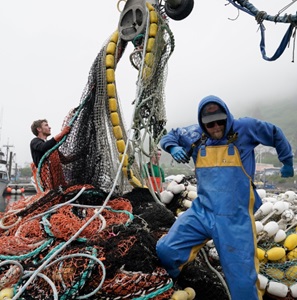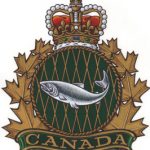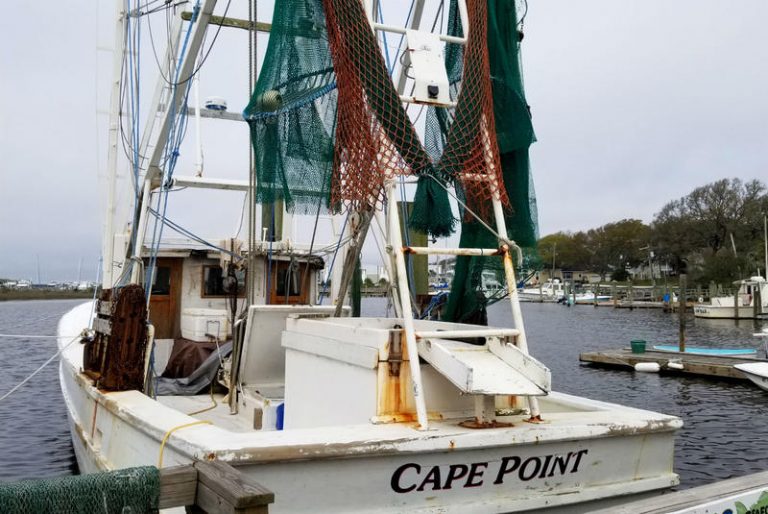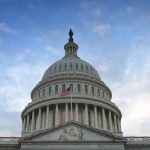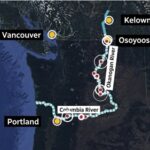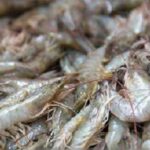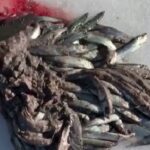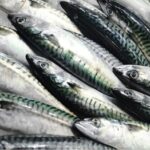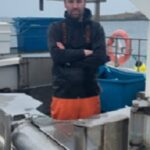Tag Archives: Sen. Susan Collins
The Future of Fishing – Island Institute launches new initiative to support Maine’s lobster industry
 Island Institute is proud to announce a $1.4 million award from the Small Business Administration to support Maine’s lobster industry and enhance the economic resilience of the coastal communities dependent on this vital fishery. This Congressionally Directed Spending request championed by U.S. Senators Susan Collins and Angus King will launch the Future of Fishing, a collaborative effort designed to expand economic opportunities for Maine’s coastal communities, building on Island Institute’s longstanding partnerships to advance a diversified, climate-forward marine economy in Maine. Maine’s fishing communities face historic challenges such as rapidly warming waters, more frequent and severe storms, costly regulatory changes, and rising business costs. These communities, and the men and women that work on the water, are the backbone of Maine’s seafood sector; a sector responsible for more than $3 billion in total economic output and more than 33,000 jobs statewide. more, >>CLICK TO READ<< 11:28
Island Institute is proud to announce a $1.4 million award from the Small Business Administration to support Maine’s lobster industry and enhance the economic resilience of the coastal communities dependent on this vital fishery. This Congressionally Directed Spending request championed by U.S. Senators Susan Collins and Angus King will launch the Future of Fishing, a collaborative effort designed to expand economic opportunities for Maine’s coastal communities, building on Island Institute’s longstanding partnerships to advance a diversified, climate-forward marine economy in Maine. Maine’s fishing communities face historic challenges such as rapidly warming waters, more frequent and severe storms, costly regulatory changes, and rising business costs. These communities, and the men and women that work on the water, are the backbone of Maine’s seafood sector; a sector responsible for more than $3 billion in total economic output and more than 33,000 jobs statewide. more, >>CLICK TO READ<< 11:28
Fishermen Feeding Mainers awarded $750K in federal funds
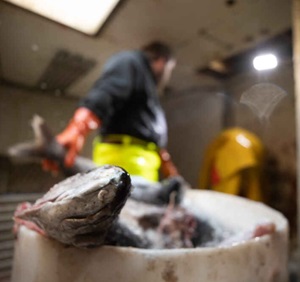 Fishermen Feeding Mainers, a program of the Maine Coast Fishermen’s Association, will be receiving $750,000 in federal funding thanks to an appropriations request submitted by Sen. Susan Collins (R-Maine) and Sen. Angus King (I-Maine). The successful request will provide funding for the program through Good Shepherd Food Bank of Maine. The Fishermen Feeding Mainers program began in October 2020 in response to the collapse of local markets and rising food insecurity in Maine. Initially funded by an anonymous foundation, the Maine Coast Fishermen’s Association partnered with Good Shepherd Food Bank to distribute donated fish to food pantries, meal sites and additional hunger-relief organizations located throughout the state. more, >>CLICK TO READ<< 06:25
Fishermen Feeding Mainers, a program of the Maine Coast Fishermen’s Association, will be receiving $750,000 in federal funding thanks to an appropriations request submitted by Sen. Susan Collins (R-Maine) and Sen. Angus King (I-Maine). The successful request will provide funding for the program through Good Shepherd Food Bank of Maine. The Fishermen Feeding Mainers program began in October 2020 in response to the collapse of local markets and rising food insecurity in Maine. Initially funded by an anonymous foundation, the Maine Coast Fishermen’s Association partnered with Good Shepherd Food Bank to distribute donated fish to food pantries, meal sites and additional hunger-relief organizations located throughout the state. more, >>CLICK TO READ<< 06:25
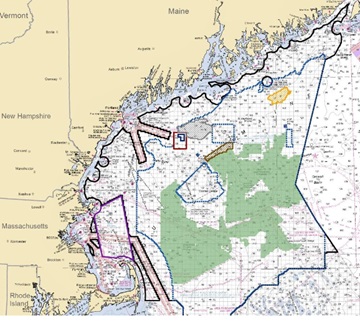
Maine Lobstermen Win Giant Carveout From Offshore Wind Development Area
The U.S. Bureau of Ocean Energy Management (BOEM) is rolling out designated offshore wind leasing areas off the lower 48 states at a rapid clip, racing to meet the Biden administration’s target of 30 gigawatts of capacity by 2030. For the latest – a 3.5 million acre parcel in the Gulf of Maine – it has decided to dodge a looming fight with fishing and environmental interests. The newly-released Draft Wind Energy Area for the Gulf of Maine has enough room for up to 40 gigawatts of offshore wind capacity, with a focus on floating wind installations in deeper water. The size is notable, but the most conspicuous part is the part that was left out: Lobster Management Area 1, a strip along the coast that is essential to the powerful Maine lobster industry. >>click to read<< 09:08
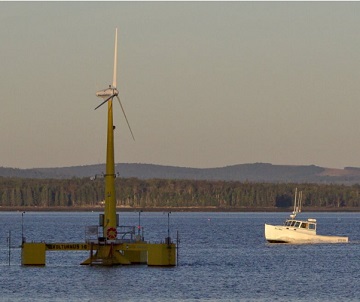
U.S. Rep. Jared Golden introduced a bill in Congress that would prevent offshore wind development in key fishing area
The bill would prevent the federal Bureau of Ocean Energy Management from potentially hurting the fishing and lobstering industries in Maine, said Golden, D-2nd District. The legislation also would launch an assessment of how federal agencies like the BOEM and the National Marine Fisheries Service study the effects of offshore wind development and engage with industry groups. Lobster Management Area 1 is the zone closest to the shores of Maine and stretches along the entire coast. That’s where Virginia Olsen, a commercial lobsterman and director of the Maine Lobstering Union, says a majority of Maine fishing and lobstering is concentrated. “I think this is the exclusion zone that the Maine Lobster Union and the area that the (Maine Lobstermen’s Association) would agree is most important economically to the fishery,” Golden said. >click to read< 19:46
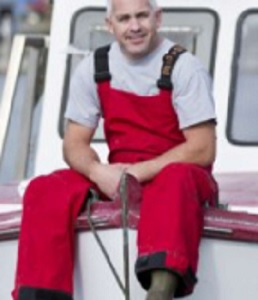
‘We’re the easiest target’: Maine lobstermen snap over regulations row
When French President Emmanuel Macron was treated to butter-poached Maine lobster at President Joe Biden’s first state dinner, the gesture was hailed 500 miles to the north. It was seen as a gesture of solidarity with an industry that is reeling from the latest in a series of blows in recent years. Having survived the pandemic and a trade war with the Chinese during the Trump years, Maine’s 10,000 lobstermen hoped brighter times were ahead. But in mid-November, the Marine Stewardship Council, an independent sustainability policeman, stepped in, triggering a clash between lobstermen, environmentalists, and the upmarket Jeff Bezos-owned Whole Foods grocery chain. >click to read< 07:34
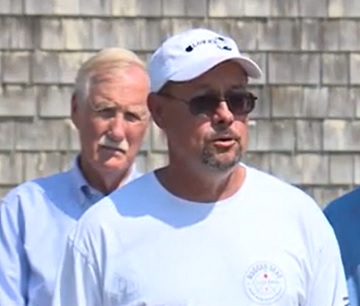
Maine lobstermen, politicians rally in protest of fishing restrictions and Seafood Watch’s recommended boycott
At a rally in Portland’s Old Port on Friday, they protested a federal judge’s ruling issue Thursday allowing the National Marine Fisheries Service, a branch of the National Oceanic and Atmospheric Association to impose limits on where and how lobstermen fish in order to protect endangered North Atlantic Right Whales. The rally was also protesting Seafood Watch, a California-based sustainable seafood advocacy group affiliated with the Monterey Bay Aquarium, now recommending food distributors and restaurants boycott Maine lobster in the name of saving the whales. Video, >click to read< 09:55
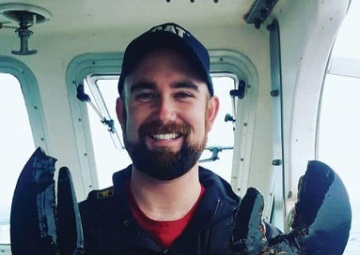
Lobster industry and lawmakers await court decision to determine legality of new restrictions
Maine and Massachusetts harvest more than 90% of the American lobsters sold in the U.S. and most lobstermen and New England lawmakers want to keep it that way. Over the past year, a dispute over new federal regulations on Maine’s lobster industry, intended to protect the endangered North Atlantic Right Whale,,, Mike Sargent became the captain of his own boat at 15. The 29-year-old is worried, however, that if regulations adopted by the National Oceanic and Atmospheric Administration in 2021 are ruled lawful by the U.S. District Court of the District of Columbia, that more expensive and stricter regulations could follow. “There’s talks of ropeless fishing and so on, and those are astronomically expensive and quite frankly could bankrupt this industry at the stroke of a pen,” Sargent said. Massachusetts lobsterman Dave Casoni said that it would cost lobstermen between $500,000-$600,000 to make the switch to ropeless traps, and if passed Casoni believes it could bankrupt the industry. Video, >click to read< 09:16

Shaheen, Collins Introduce Bipartisan Bill to Help Lobster Industry Afford New Gear
U.S. Senators Jeanne Shaheen (D-NH) and Susan Collins (R-ME) introduced bipartisan legislation to support lobstermen by creating a grant program to help them comply with federal regulations that require a change in fishing gear, which reduces the risk of entanglement for highly endangered North Atlantic right whales. The Stewarding Atlantic Fisheries Ecosystems by Supporting Economic Assistance and Sustainability (SAFE SEAS) Act of 2022 will help lobstermen with the financial burden of this transition in gear – which is expected to cost the industry tens of millions of dollars each year. >click to read< 10:20

Trump Memo On Lobster Aid Leaves Industry Wondering What’s Next. How about a U.S.Fish Bill?!!
In a memo, the president urged Secretary of Agriculture Sonny Perdue to consider taking appropriate action “to provide assistance to fisherman and producers in the U.S. lobster industry that continue to be harmed by China’s retaliatory tariffs.” He also asked the secretary to consider including lobster and other segments of the seafood industry in future assistance to mitigate the effects of the tariffs. But none have heard details on what Perdue might do to offset the impact on the industry of Trump’s trade war with China. The U.S. Department of Agriculture is also mostly quiet. >click to read< 10:01 – A reminder from Sam Parisi to those interested in creating and implementing a U.S. Fish Bill – Greetings to all commercial fishermen, fish processors, equipment suppliers, politicians, and citizens, that are interested and supportive of creation of the U.S. Fish Bill. >click to read< 10:06






